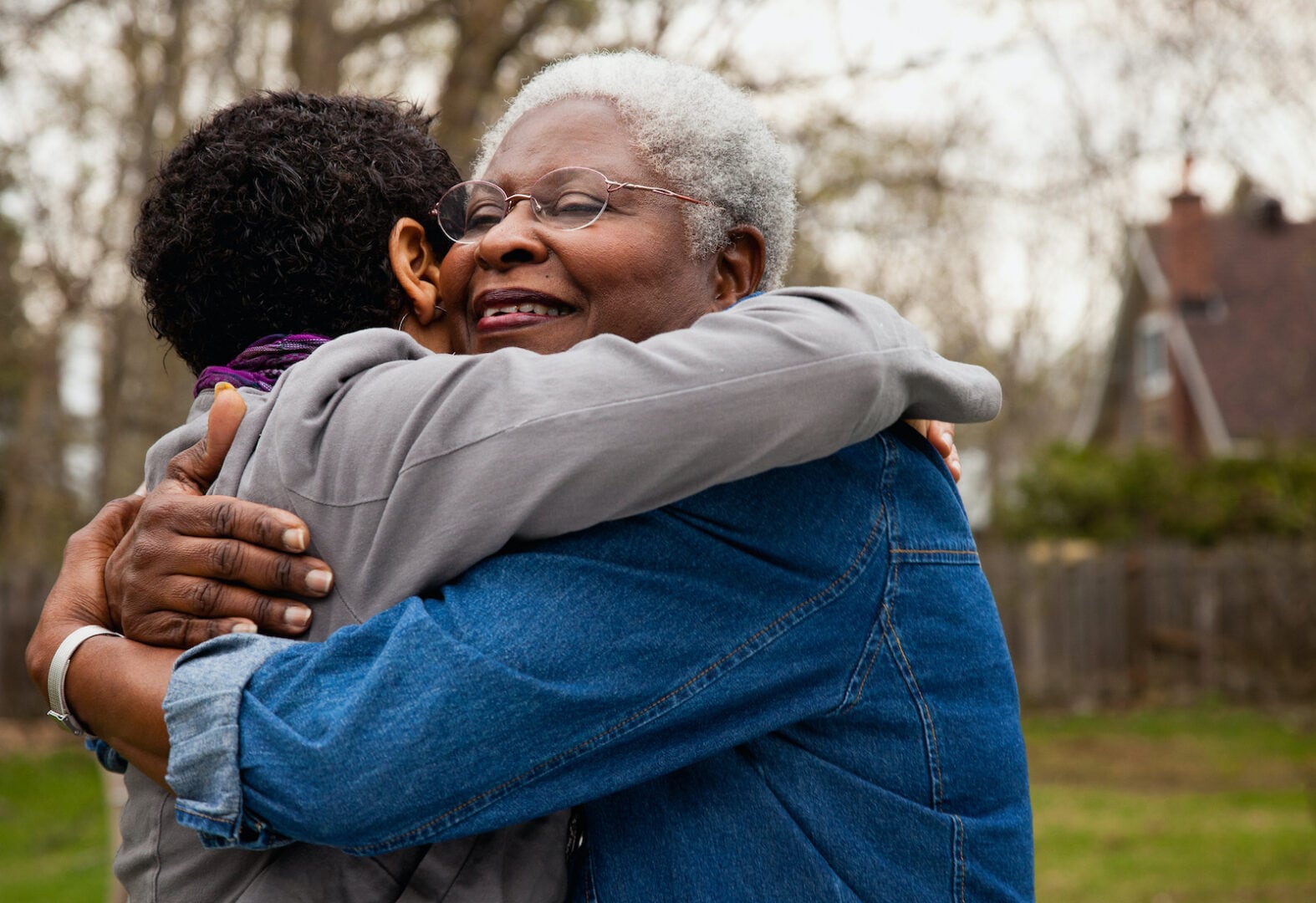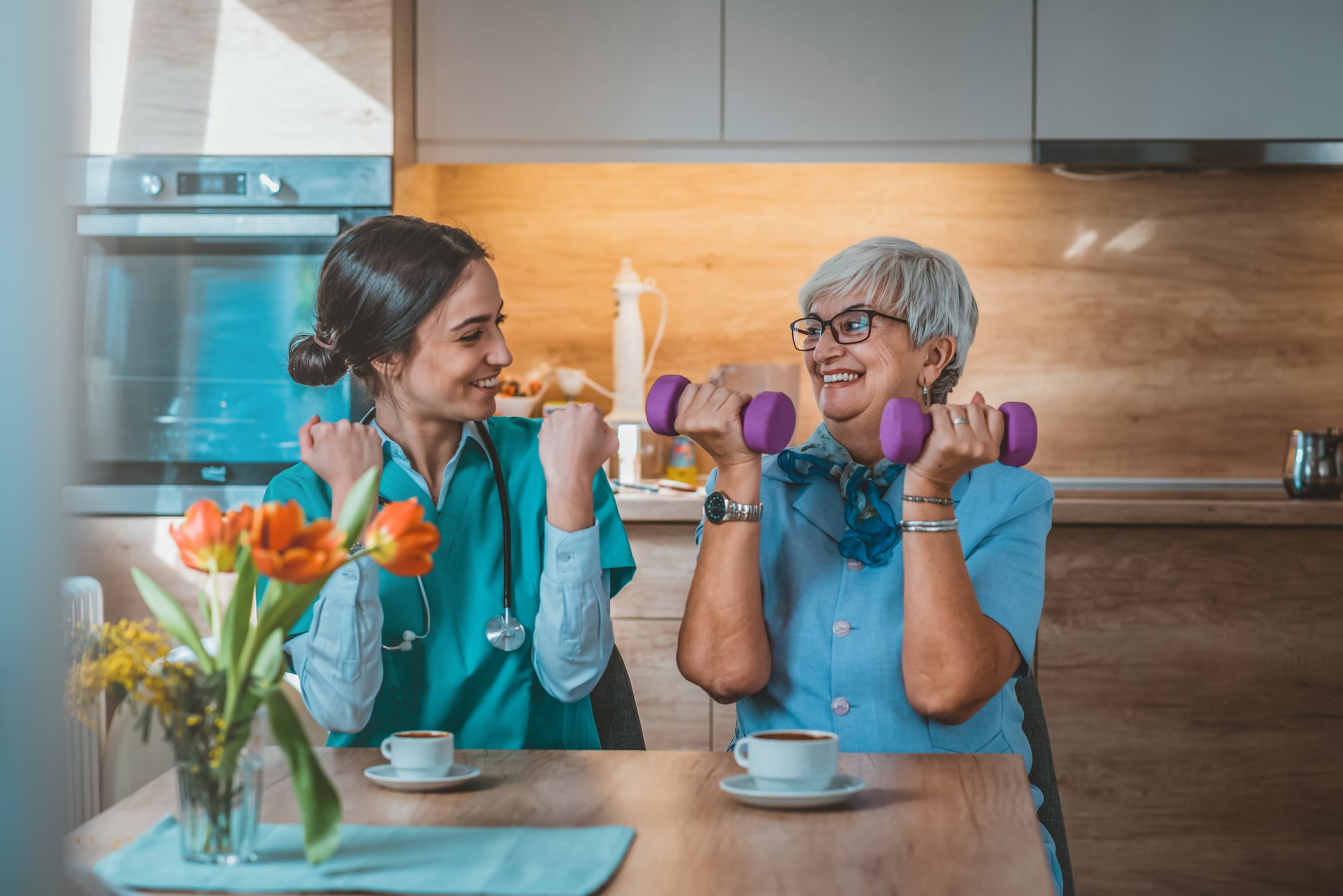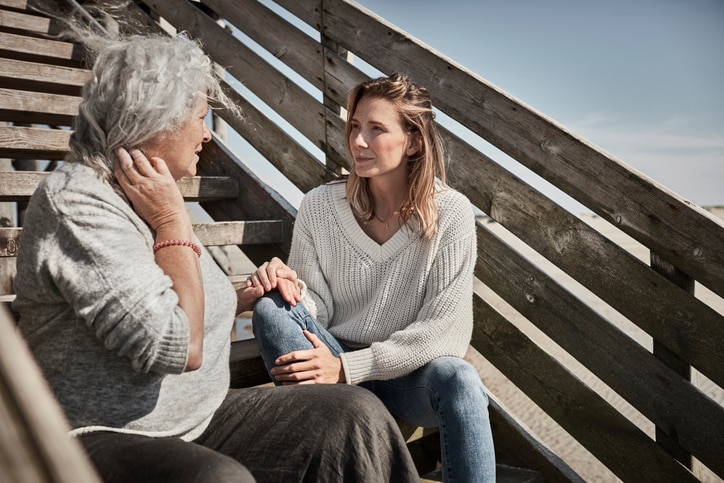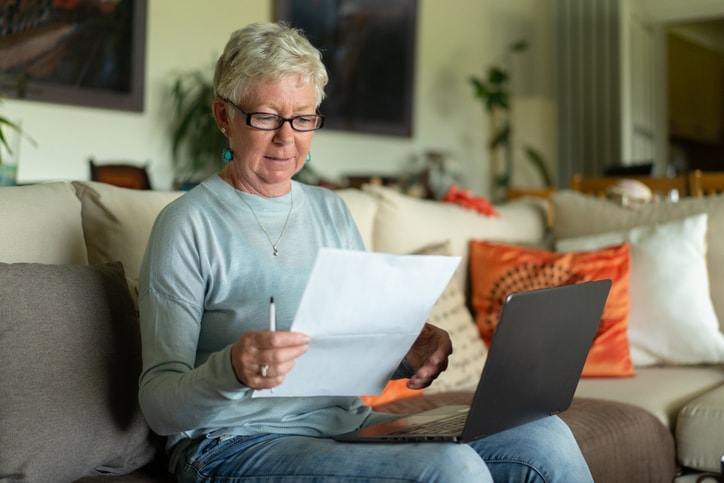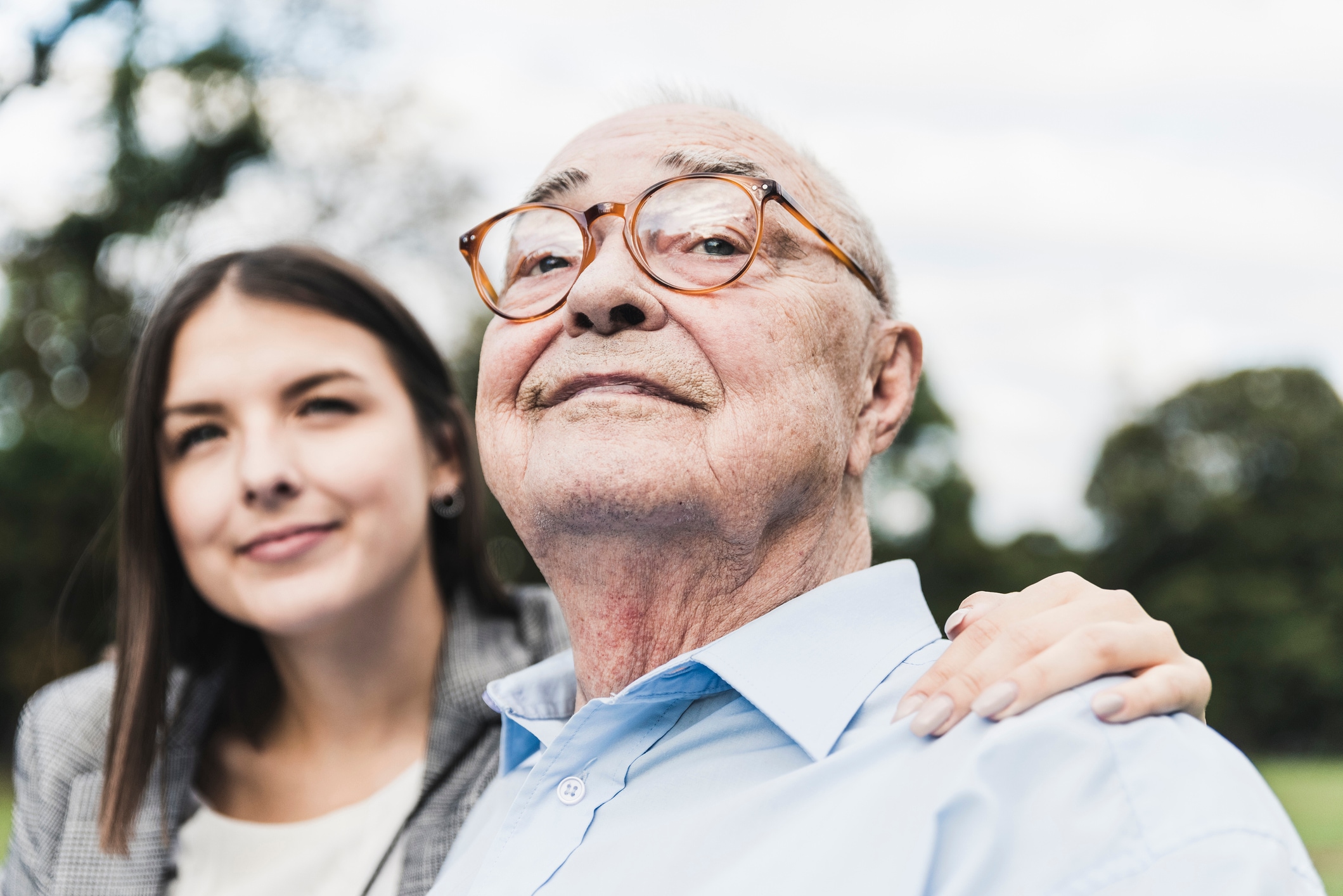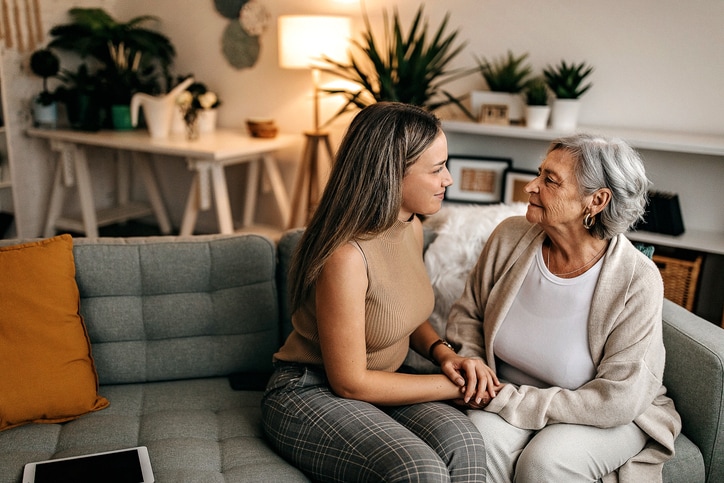In this article
While it’s normal for our health, bodies and minds to change over time, it’s important to be vigilant in monitoring our older loved ones for signs that they may be struggling with their overall well-being or need additional care and support.
Dr. Angela Catic, a board-certified geriatrician and associate professor at Baylor College of Medicine in Houston, Texas, notes that being alert for signs of potential health problems is key when it comes to older adults.
Here, experts discuss the red flags you should look out for to know if your older relatives are struggling with their mental, physical and emotional health.
Evaluating mental health in seniors and older adults
Evaluating mental health in seniors and older adults’ is just as important as looking out for their physical health, notes Angela Plowhead, who holds her doctor of psychology and is a licensed psychologist and geropsychology specialist in Salem, Oregon, as loneliness and isolation are ongoing struggles for many older adults.
The pandemic, she adds, brought this into much clearer view. “About a third of older adults were already experiencing loneliness or social isolation prior to the pandemic,” she says. “Throughout the pandemic, one thing we saw across all generations, but especially among older adults, was increased rates of anxiety, depression, post-traumatic stress disorder (PTSD) and people just feeling hopeless and not knowing what to do about it.”
Signs and symptoms your older loved one may be struggling with mental health
- Lethargy.
- Poor eating habits or diet.
- Not wanting to engage in activities they found pleasurable before the pandemic.
- Avoiding gatherings, even when others have been vaccinated or the event is being held outdoors.
- Increased aggression, agitation or impulsivity.
- Increased alcohol consumption.
- Talking about feeling lonely or hopeless.
Some of these symptoms of mental health in seniors may also be signs of other health issues, so it’s important to talk openly with your loved one to get to the root of what’s going on.
“Check in with them and really ask them about how they’re feeling.”
— Dr. Angela Catic, board-certified geriatrician
Catic notes, instead of a perfunctory “how are you?” you should “check in with older loved ones and really ask them about how they’re feeling.”
Red flags for older adults’ mobility and cognition
Both Catic and Plowhead stress the importance of looking out for the following issues:
Difficulty getting around
Pay attention to how older adults navigate their living area and perform basic tasks. “For example, is this someone who used to walk robustly, and now we notice they’re less steady on their feet, or they’re confining themselves to their home and not feeling comfortable even going outside to take a walk?” notes Catic.
If they’re struggling to get from room to room, appear to be in pain or are reluctant to engage in simple movements or activities that weren’t challenging before, it’s important to take note.
Increased repetition or forgetfulness
“Look for repetition in conversation,” Plowhead says. “That could mean being asked the same thing repeatedly, or conversely, being told the same information over and over again within the same conversation.”
Similarly, if they’re suddenly more forgetful than usual or unable to recall important details, that could be a sign of cognitive decline. “It’s normal to occasionally forget a name or put your glasses on your head and forget they’re there,” Plowhead says. But if they’re doing things like regularly forgetting to turn off the stove after using it, getting lost in familiar areas or forgetting common words when speaking, this could be an early sign of memory loss. Memory loss can have multiple causes, including Alzheimer’s and dementia, so it’s important to note their symptoms and speak with a doctor if this is a concern.
Loss of routine
If a senior loved one is struggling with their memory, physical health or mental health, it can impact their daily routines in many ways. They might have trouble maintaining their living space and end up with more clutter than is normal, or they may fall behind on basic tasks, like getting medications refilled or grocery shopping. For this reason, Catic says, it’s important to visit with your loved one in person and, if they live alone, get a look inside their home. When you do this, check for the following:
- Is their living space in the expected state of cleanliness and repair?
- Is there adequate food in the refrigerator? Is any of it expired?
- Do they have enough of their medications in the house?
- Are they practicing good hygiene?
- Is their clothing disheveled or put on incorrectly?
If possible, Catic says, you may also check to make sure your loved one’s bills are being paid on time. You might try asking if they need help with scheduling or mailing any payments. “That may not be something that an older adult is comfortable sharing,” she says, “but [if they have fallen behind] it would be a tip-off that there’s been a significant decline in mental health or function.”
What to do if there’s cause for concern for mental or physical health issues
It can be frightening and stressful to realize your older loved one is dealing with mental or physical health issues. It’s normal to not feel sure how to get your loved one the help they need. Here are the steps the experts say to take.
1. Observe what’s going on
If you’re noticing a physical decline, it is important your loved one reaches out to their primary care physician as soon as possible, Plowhead says. The same goes for significant changes or declines in self-care, such as bathing, grooming, dressing or eating habits. “But if the changes are more subtle, such as momentarily forgetting names or where they have placed an item, it might require careful observation and discussion with the family member about changes they might be concerned about,” she says.
Make a commitment to visiting your loved one more frequently, or consider creating a visiting schedule with other family members. Observe what’s happening over the course of a few weeks or a month. This will help you determine if behaviors you’ve noticed are ongoing and require medical attention.
2. Have a frank conversation
If you see ongoing declines that concern you, there’s a good chance your loved one does, too, Plowhead says.
“Ask them about it,” she explains. “Say, ‘Have you noticed any changes with your memory? This is what I’m seeing. Do you see that?’ Often, if people are concerned with their memory or health, they’ll say, ‘I just can’t remember things like I used to’ or make other comments that show what’s happening is an issue for them.”
“Self-determination and respect are very important factors that do not change as people age.”
— Angela Plowhead, licensed psychologist
3. Ask what you can do to help
“Self-determination and respect are very important factors that do not change as people age,” Plowhead says. “Involving the person in discussion and letting them guide their care is a part of communicating their value to you as a person and as a family member.”
There are many ways to support older people, depending on what kind of assistance or care they need. Through talking together, you can build an action plan. According to Plowhead, some possible ways to take action include:
- Planning more regular visits.
- Seeking health support services, such as therapists, doctors or home care providers.
- Sending regular care packages, letters or notes.
- Setting up a meal delivery service.
- Helping with household tasks.
- Encouraging visits to the local senior center or other social activities.
- Scheduling phone calls or virtual dates with family members and friends.
4. See a doctor
A doctor should be sought right away for declines that impact your loved one’s mobility or ability to carry out basic household and self care tasks. If declines are less severe, but you notice ongoing struggles with memory or mental health, checking in with a medical provider is also good idea, Catic says.
If your loved one participates in home care or resides in a care facility, speak with their care providers about what you’re noticing. If they live alone, encourage them to go for a check-up as soon as they reasonably can.
Remember that some people may feel anxious about resuming doctor visits or reluctant to address health problems that seem overwhelming and scary. Catic suggests offering to help with scheduling and rides or even accompanying them to appointments with their consent. In some cases, asking your loved one to speak to a doctor on the phone may also help encourage them to be seen in-office.
“Sometimes we can talk to them and elicit some concerns or even pick up issues over the phone,” Catic says. “They might be more receptive to coming in if it’s being requested by a medical professional as opposed to a family member.”
The bottom line
Catic and Plowhead agree that the most important thing you can do for your aging loved one’s health is to prioritize time with them, engage them as much as possible and show support for their well-being.
“Spending time with the person is going to give you so much more information about how they’re doing,” Plowhead says. “It not only helps with reducing potential loneliness, anxiety and depression, but also lets you know what’s going on with them physically and cognitively and how to help get them back on more solid footing.”
